The toyger breed, acclaimed for its striking appearance and lively spirit, is a relatively new addition to the feline world. It was created in 1980 by Judy Sugden, the daughter of Jean Mill, the original mastermind behind the Bengal breed.
Sugden’s breeding program involved using two cats, a domestic shorthair named Scrapmetal and a lanky Bengal cat named Millwood Rumpled Spotskin. She observed the distinctive tabby markings on the Bengal’s head and started experimenting further. She even adopted a street cat from Kashmir, India, which later became the breed’s signature in her quest to achieve the perfect markings.
After a year of her breeding program, other renowned breeders, Anthony Hutcherson and Alice McKee, joined the effort to create the toyger we know and love today—a true miniature tiger. The International Cat Association (TICA) recognized this breed as a championship cat in February 2007, while the Governing Council of the Cat Fancy (GCCF) acknowledged it in October 2015.
The information provided herein is for informational purposes only. Please refer to our disclaimer for more details..
Toyger Breed Profile
Origin: United States
Other names: Toy Tiger
Weight: 7-15 pounds
Length: 16-18 inches
Lifespan: 10 to 15 years
Toygers are a textbook example of an elegant cat breed with tiger stripes. In addition to their distinct markings, they have shorter legs than other breeds and are quite muscular. Male toygers are more muscular than females, a common trait among big cats. Perhaps this is why they are often compared to wild felines.
It depends on how much care and attention you invest, but these cats generally possess amiable personalities and ideal temperaments. They are generally good around kids, but like most cats, they have limited tolerance levels. It is essential to train your children how to interact with pets and establish some boundaries.
While their energy levels may surpass those of other breeds, these cats are capable of thriving outdoors. However, if you choose to let them roam, make sure the garden is secure enough to prevent them from accidentally escaping.
Diet and Nutrition Needs
Cats can be pretty particular when it comes to their food, and their nutritional needs usually vary based on a number of factors. These factors include age, lifestyle, overall health, gender, and pregnancy or lactation in females. Therefore, it’s essential to collaborate with your veterinarian to establish an optimal diet regimen for your furry friend.
Generally, toygers have dietary needs similar to typical domestic short-haired cats. To keep your pet healthy, ensure access to premium wet and dry food and fresh, clean water at all times. When considering treats for your toyger, a small portion of meat such as poultry, beef, or fish is a suitable choice.
Common Health Issues With Toygers
Toyger cats are a young breed, so there is limited research about their health issues. Despite this, professionals consider toygers healthy and not prone to many diseases.
Some breeders and veterinarians, however, believe that toygers are at an increased risk for heart murmurs, which are abnormal blood flows within the heart. Regular veterinary check-ups can help detect this condition early and prolong the cat’s lifespan.
Since the toyger was developed using the Bengal breed, it is recommended that DNA testing for pyruvate kinase deficiency and progressive retinal atrophy be conducted. This test can determine whether the cat is potentially affected by these conditions.
2016, the Journal of Veterinary Internal Medicine published a study on toyger cats selectively bred for a shorter ear phenotype. The study assessed 20 Toyger cats, out of which seven were healthy, while 13 exhibited neurological symptoms. The study found that an early diagnosis of neurological abnormalities through an MRI scan can help toyger cats live longer.
Toyger Care
Most domestic cats require similar care, and even first-time owners should not have any major difficulties in caring for their kittens. Experienced cat owners may have an easier time, but this breed is suitable for both novice and experienced owners.
Grooming
Toygers have short, thick, velvety coats that are relatively easy to maintain. However, they tend to shed quite a bit, so we recommend you brush them at least once a week.
To keep your toyger’s teeth healthy, we recommend brushing them with specialized toothpaste. How often you should brush will depend on your vet’s recommendations.
As part of the grooming routine, clean your pet’s ears regularly to keep them safe from serious ear infections. Finally, regular nail trimming will help you avoid furniture destruction.
Exercise needs
Long walks on a leash aren’t necessary for cats, but they still need some activity. Toygers can be active indoors, so make sure to separate a few minutes to have some interesting interaction with them. Playing fetch or some puzzle game is also very good for mental stimulation.
Toygers are a breed that closely resembles Bengals and shares many personality traits. However, Bengal cats tend to be more independent than toygers, requiring more attention from their owners. Despite this, toygers are generally easy to train and can play independently if given enough attention and care from their humans. If you plan to bring a toyger into your family, you should be prepared to give them a little extra time and attention.
Where Can You Buy or Adopt a Toyger
The best place to get a purebread toyger is to find a certified breeder in your region. Currently, TICA lists a few toyger breeders from the USA, China, France, and Australia. It is important to note that some states require owners to have a permit to own this breed due to their genetic similarity with wild cats, specifically Bengals.
There’s very little chance you will find a “miniature tiger” in a shelter as most pet owners are highly attracted to looks, and a gorgeous toyger would be swept as soon as it lands in the shelter. We’d still encourage you to try; maybe you’ll find another homeless cat that could keep your Toyger company to play with.
FAQ
Is a Toyger Cat a Good Pet?
Yes, Toygers can be a good pet. It can depend on your effort as well, but generally, they get along well with children, and they are extremely connected with their owners.
Do Toygers Like To Be Held?
It depends; cats tend to have unique personalities and preferences. Whether or not they enjoy being held can be influenced by their upbringing and training, as well as their past experiences. Providing your cat with plenty of love and attention can help build trust between you and your feline friend.
Can Toyger Cats Be Left Alone?
Yes, like any other breed, toygers can be left alone, but make sure to set some limits. Leaving them alone for too long can lead to destructive behavior. Don’t forget they enjoy being around their favorite humans.
How Much Does a Toyger Cat Cost?
The cost of toyger cats depends on their pedigree, show quality, breeder reputation, bloodline, and geolocation. Their price for a purebred toyger may range from $1,500 to $5,000.
3Kviews
Share on FacebookIt's always an extremely bad sign to say that a human created an animal breed. We are NOT supposed to that and considering the world is full of, probably at least tens of millions, homeless cats that desperately need a home, I say ALWAYS ADOPT DON'T SHOP. Next month I'm adopting two stray cats, because it's not about me and my ego, it's about giving a home to someone who needs it!! Honestly I feel that people who buy from breeders are not good people at all.
I had a friend years ago who was working with the original Toyger breeders and was trying to start a cattery of her own, breeding Toygers. I haven't talked to her in a while... I wonder if she ever got her cattery off the ground.
Yet another breed of cat that shouldn't have been created in the first place.
It's always an extremely bad sign to say that a human created an animal breed. We are NOT supposed to that and considering the world is full of, probably at least tens of millions, homeless cats that desperately need a home, I say ALWAYS ADOPT DON'T SHOP. Next month I'm adopting two stray cats, because it's not about me and my ego, it's about giving a home to someone who needs it!! Honestly I feel that people who buy from breeders are not good people at all.
I had a friend years ago who was working with the original Toyger breeders and was trying to start a cattery of her own, breeding Toygers. I haven't talked to her in a while... I wonder if she ever got her cattery off the ground.
Yet another breed of cat that shouldn't have been created in the first place.

 Dark Mode
Dark Mode 

 No fees, cancel anytime
No fees, cancel anytime 



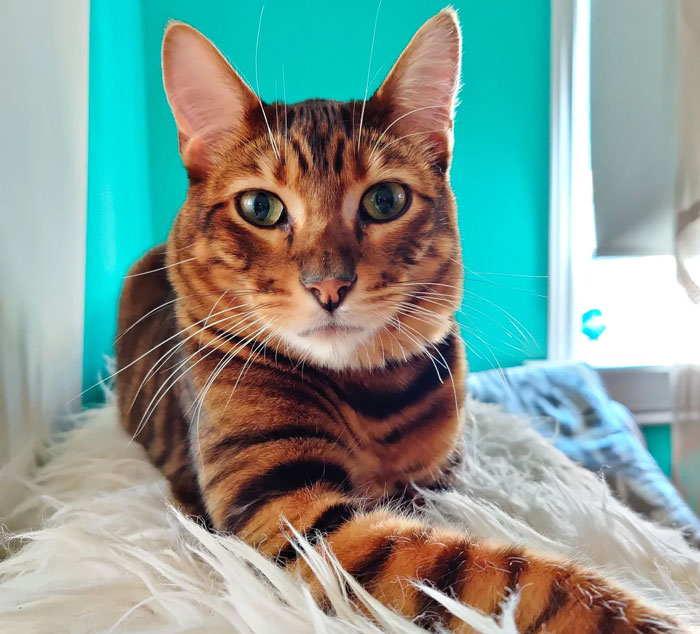
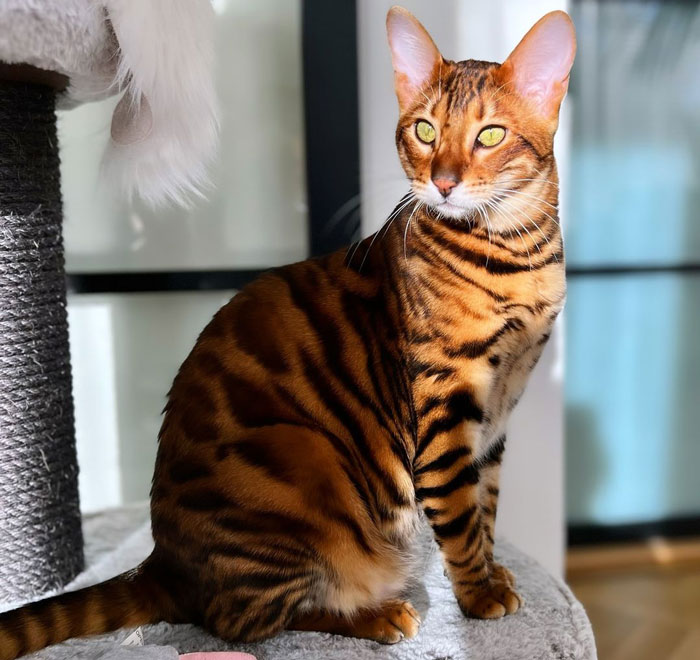 Image credits:
Image credits: 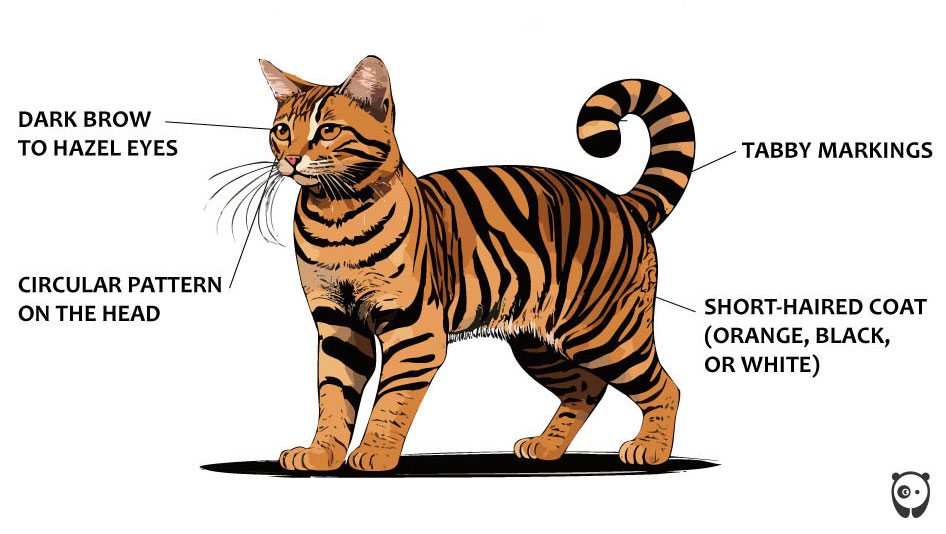
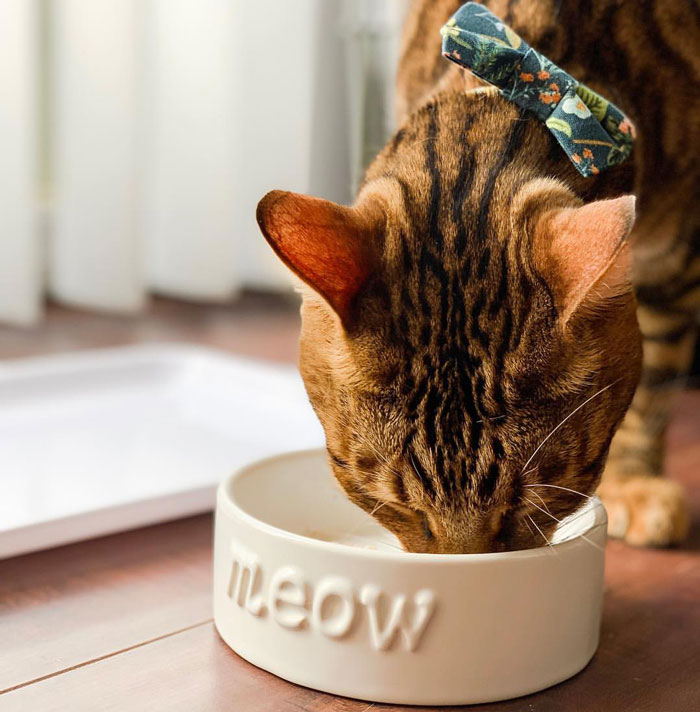 Image credits:
Image credits: 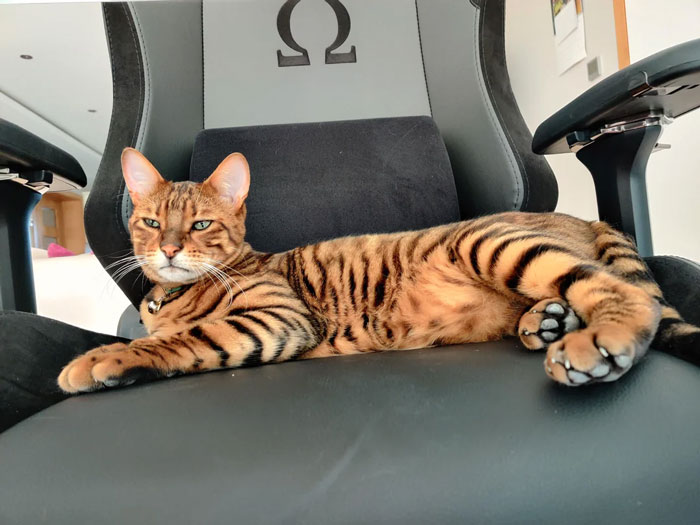 Image credits:
Image credits: 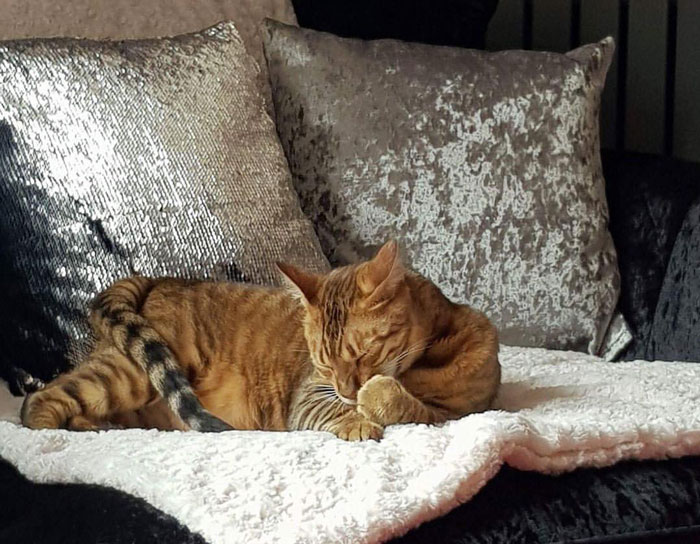 Image credits:
Image credits: 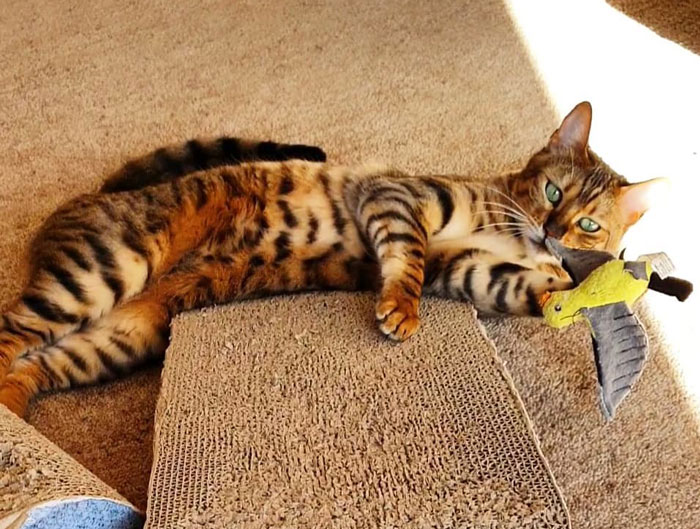 Image credits:
Image credits: 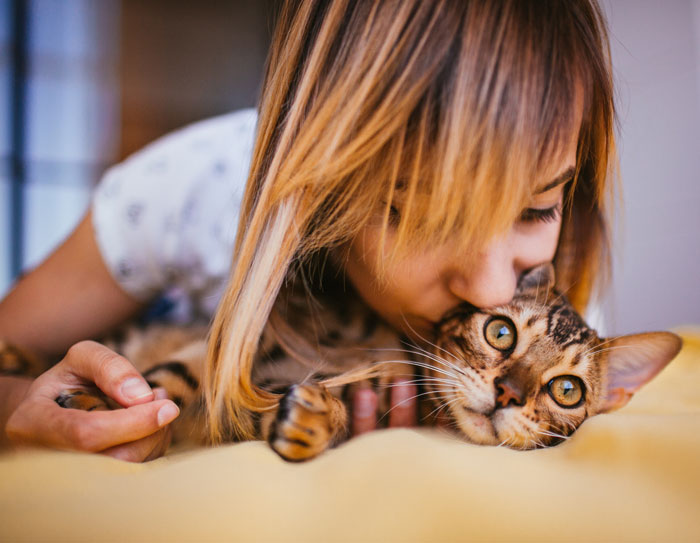 Image credits:
Image credits: 


















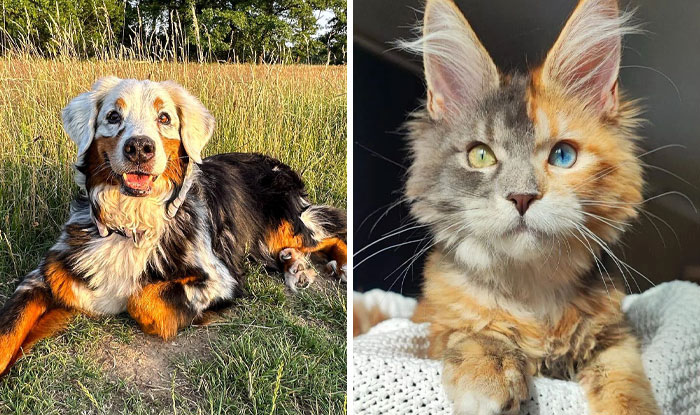



3
3